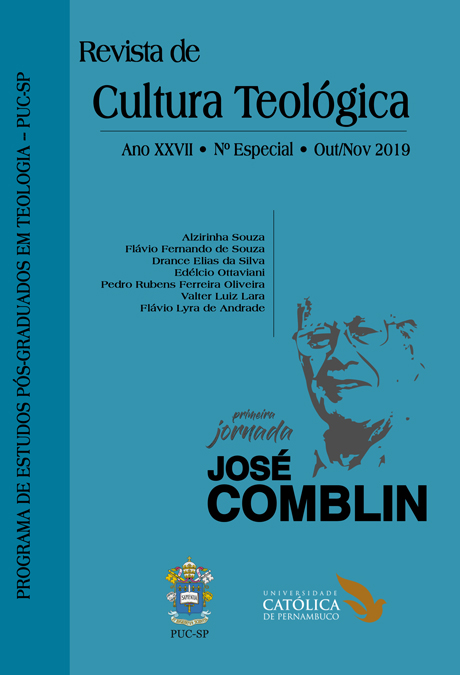Comblin and the use of Social Sciences
DOI:
https://doi.org/10.23925/rct.i0.45264Keywords:
Liberation Theology, Faith and Life, Social CommitmentAbstract
José Comblin is considered one of the most innovative theologians in Latin America. He reformulated Christology in function of the life of the poor and not only, it elaborated an ecclesiology where the poor occupies the central place. His thesis that the gospel is not a religion has long inspired us. In Christianity there is a tension between two poles: the religious (ideological), expression of a symbolic world that includes doctrine, rites and priests, and the gospel, prophetic (counter-ideological). The purpose of this paper is to reflect on two fundamental questions: 1) in what sense do the social sciences help to explain the social interests that condition José Comblin's theological work; 2) in connection with this, to question the role that ideological suspicion plays in the way of doing theology in Comblin. For this purpose, reference is made to some works made between 1982 and 2007. From this perspective, we intend to elaborate an analysis of Comblin's way of doing theology, emphasizing the role of sciences in its production. Sciences such as sociology, economics, political sciences and anthropology express due analytical importance on the social issue and the liberation of hunger, oppression and social exclusion that constitute one of the greatest challenges for the Church and society.Downloads
Published
2019-11-18
How to Cite
da Silva, D. E. (2019). Comblin and the use of Social Sciences. Revista De Cultura Teológica, 52–69. https://doi.org/10.23925/rct.i0.45264
Issue
Section
Mesas Redondas


